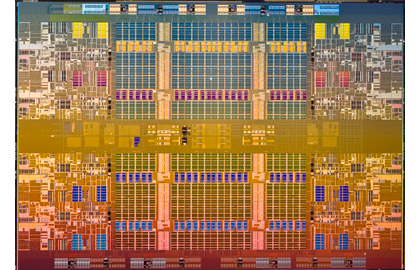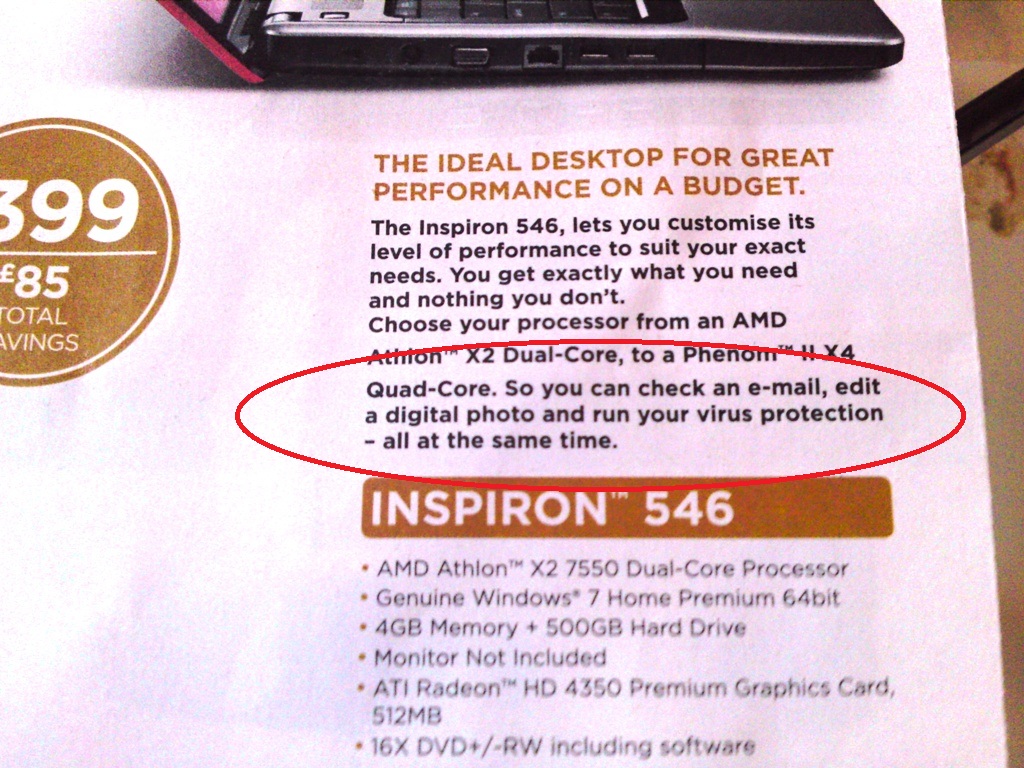Full Multi-core Power May Require Windows Rework
How about we just build you a core for every program that you wish to run?
AMD and Intel are quickly ramping up the number of cores inside our consumer level CPUs, but do we have the software chops to handle all that power?
With modern CPUs now having more cores in one chip than some of us have computers in our homes, the question of how to handle all that power is a concern for a certain software kernel architect at working Microsoft.
We now have affordable PCs with up to four cores and some even able to process twice as many threads. "Why should you ever, with all this parallel hardware, ever be waiting for your computer?" posed Dave Probert, a part of the Windows core operating systems division at Microsoft.
The problem, Probert believes, is that software still isn't being written to best take advantage of all the hardware that'd we've been running in our systems for years now.
Although modern operating systems do true multitasking and scale with the addition of more cores, Probert thinks that to take full advantage of the new wonderfully powerful hardware we have, it will require a reworking and rethinking of Windows.
Of course, with the rapidly growing number of cores, especially in light of Intel's experimental 48-core CPU, an alternative method would be to devote at least one discrete core to each application.
"With many-core, CPUs [could] become CPUs again," he said. "If we get enough of them, maybe we can start to hand them out."
Get Tom's Hardware's best news and in-depth reviews, straight to your inbox.
In such a case, the OS would no longer resemble the kernel mode of today's systems, but it would be more like a hypervisor, providing a layer between the virtual machine and hardware.
Read more from the IDG News Service.
-
powerofpi Forget the Windows Kernel; I would like to see the Linux kernel get more and more parallel! I feel sorry for kernel developers as they begin to parallelize their code... their life is going to get increasingly complex.Reply -
darkknight22 I can only imagine the possibilities if programs begin to utilize parallel processing...Reply -
cryogenic http://www.barrelfish.org/Reply
Microsoft is already working on it, and it's a multikernel OS, basically lots of small kernels that run collaboratively on different hardware nodes (like NUMA nodes) instead of the classical approach of one kernel running on multiple NUMA nodes at once.
-
lcdvt Are there realy eight or twelve tasks in the home OS that all need attention at the same time at 3 GHz? I don't think so! Application and game developers will need to find ways to use the CPU's full potential, not kernel developers.Reply -
werfu The problem is that most modern language dont cope well with parallel paradigms. You need the OS support for it, like threads. We need language built parallel iterators and syncing. In short: new program flow structure that support parallelism.Reply -
Shadow703793 Reply"Why should you ever, with all this parallel hardware, ever be waiting for your computer?"
Ummm.... because some things CAN'T be done in a parallel way! -
Anybody who ever has attempted multithreaded code in Windows knows that stability goes out the window the minute you start adding more threads that actually require synchronization. It's pretty terrible TBH. Not to mention, the performance gains aren't always what you'd hope for either.Reply
-
lcdvt multithreaded_doT_net_devAnybody who ever has attempted multithreaded code in Windows knows that stability goes out the window the minute you start adding more threads that actually require synchronization. It's pretty terrible TBH. Not to mention, the performance gains aren't always what you'd hope for either.Reply
My advice, is misuse the message pump to stabilize your application. Create hidden windows and send windows messages between threads. It isn't pretty, but it always works. -
where is those long promised graphene super speedy cpu's we are all waiting for not these crappy multitreads @1.2 Ghz? He-he gm:)Reply
-
We will continue to wait for those advert programs to load holding up internet sites no matter how many cores we haveReply


